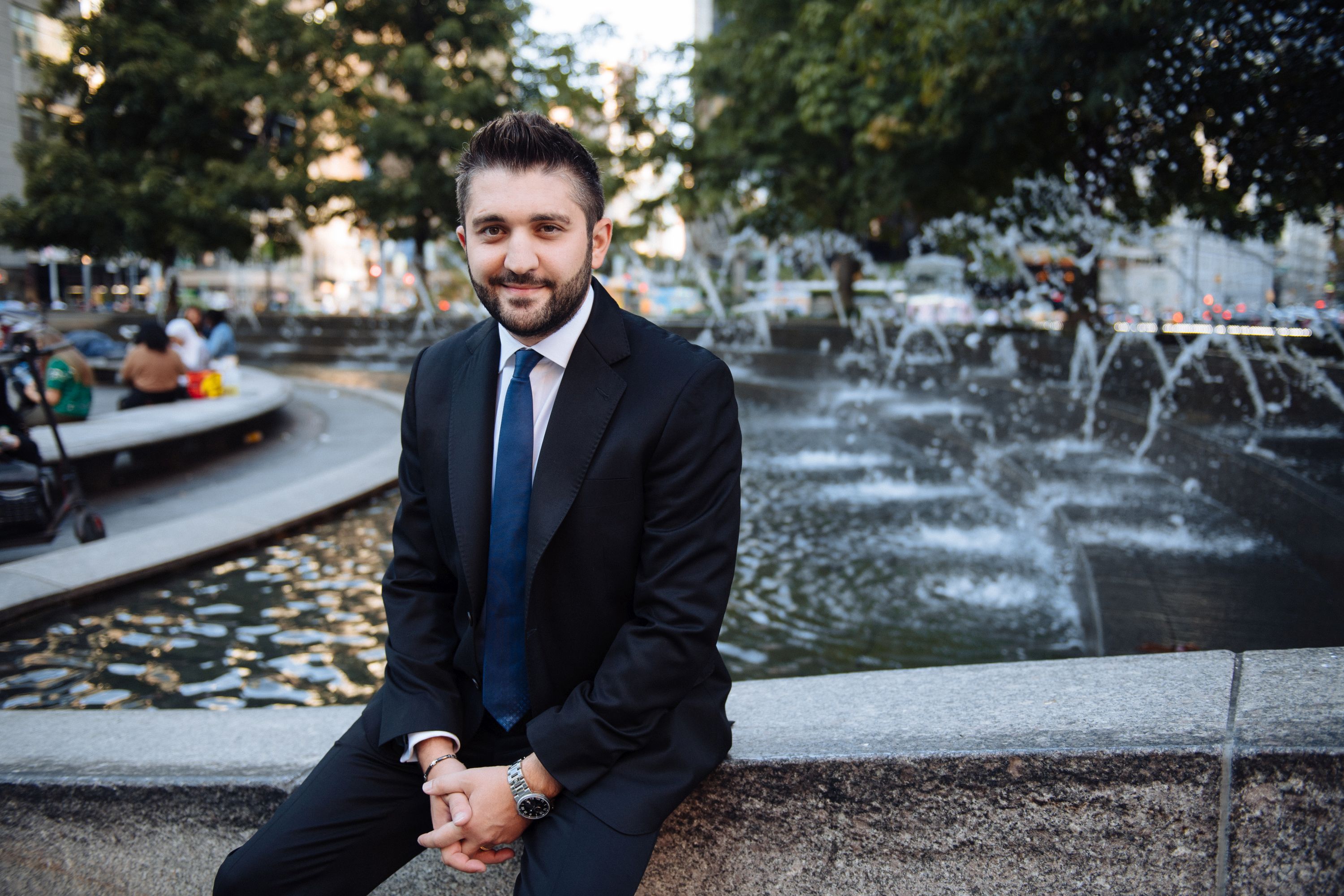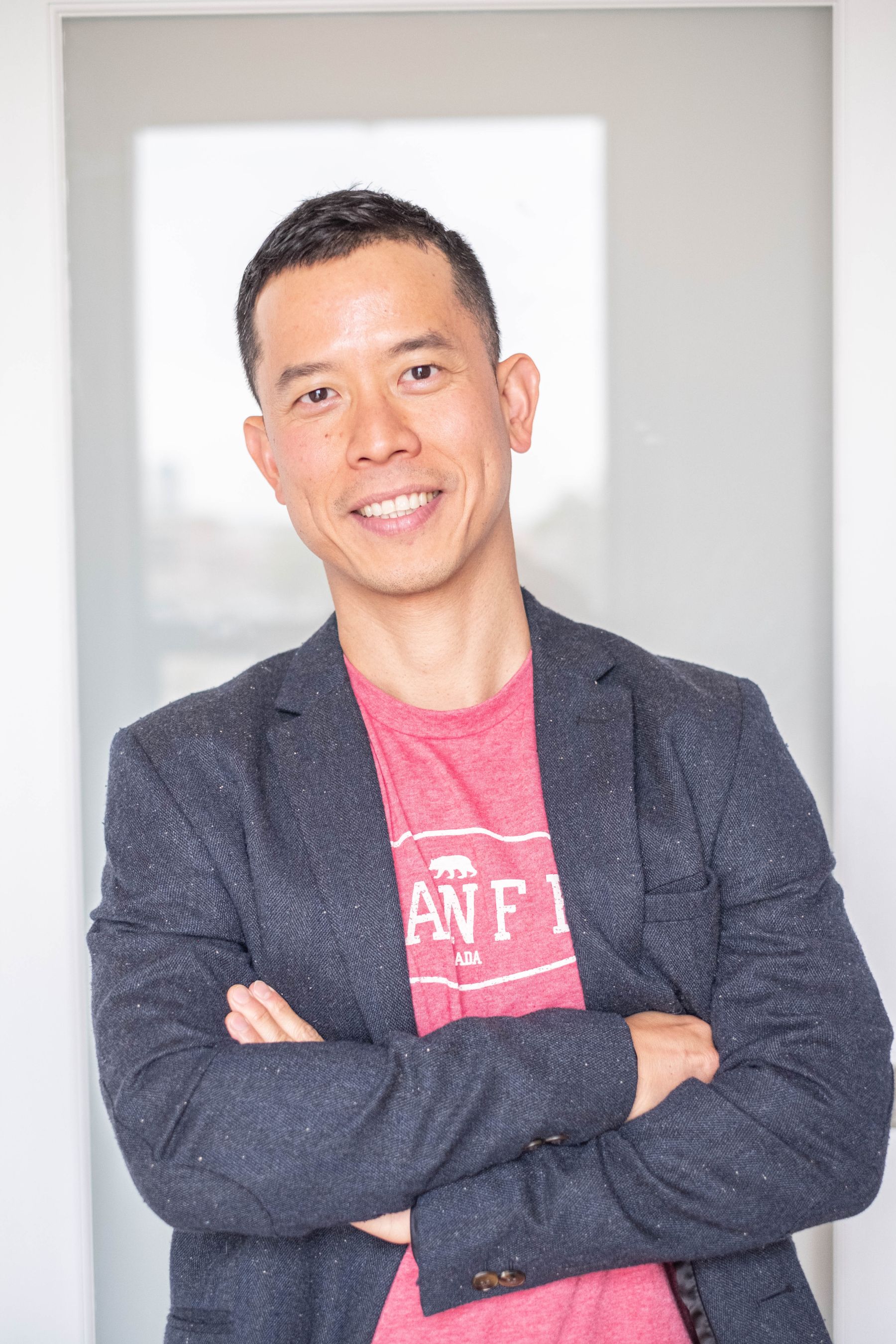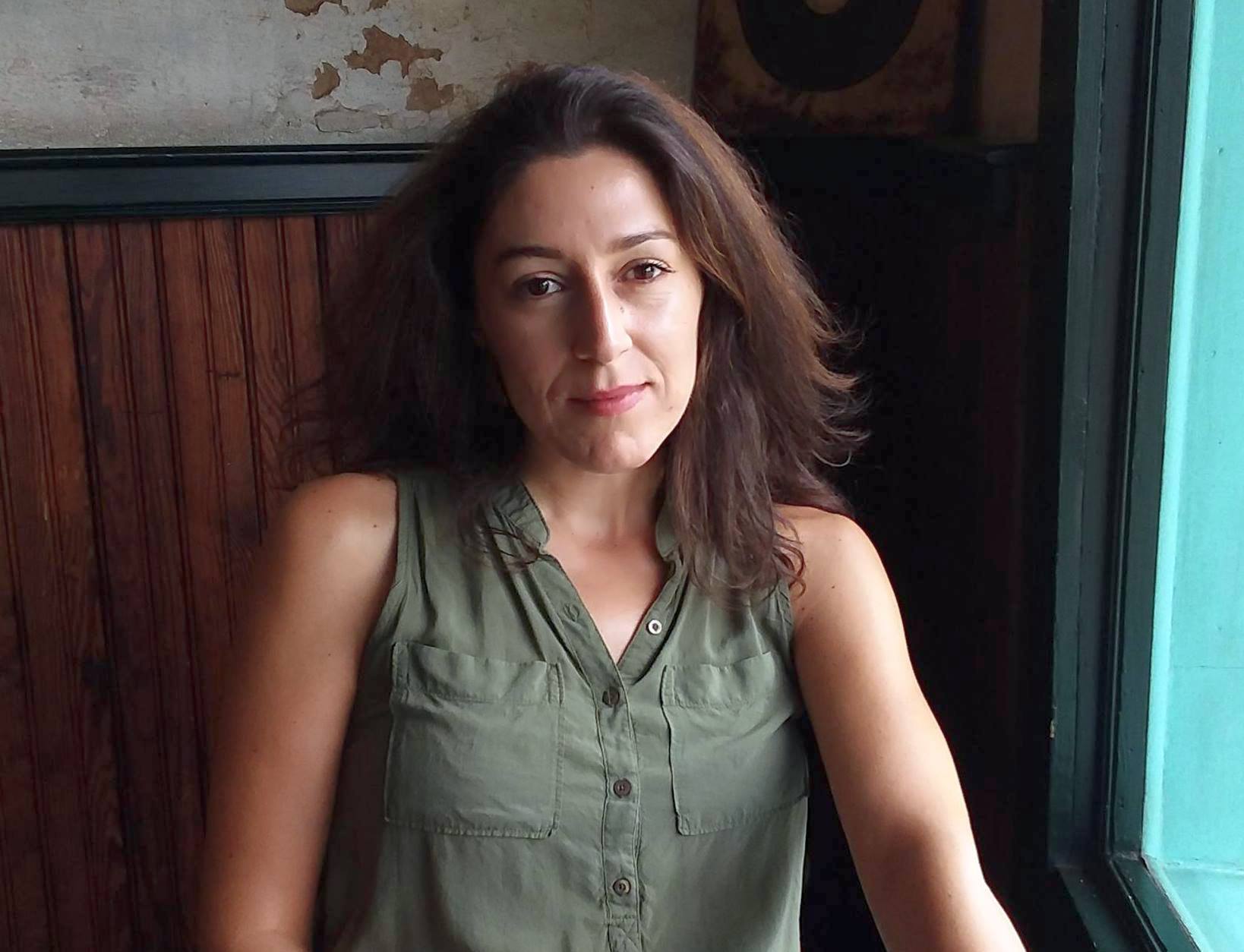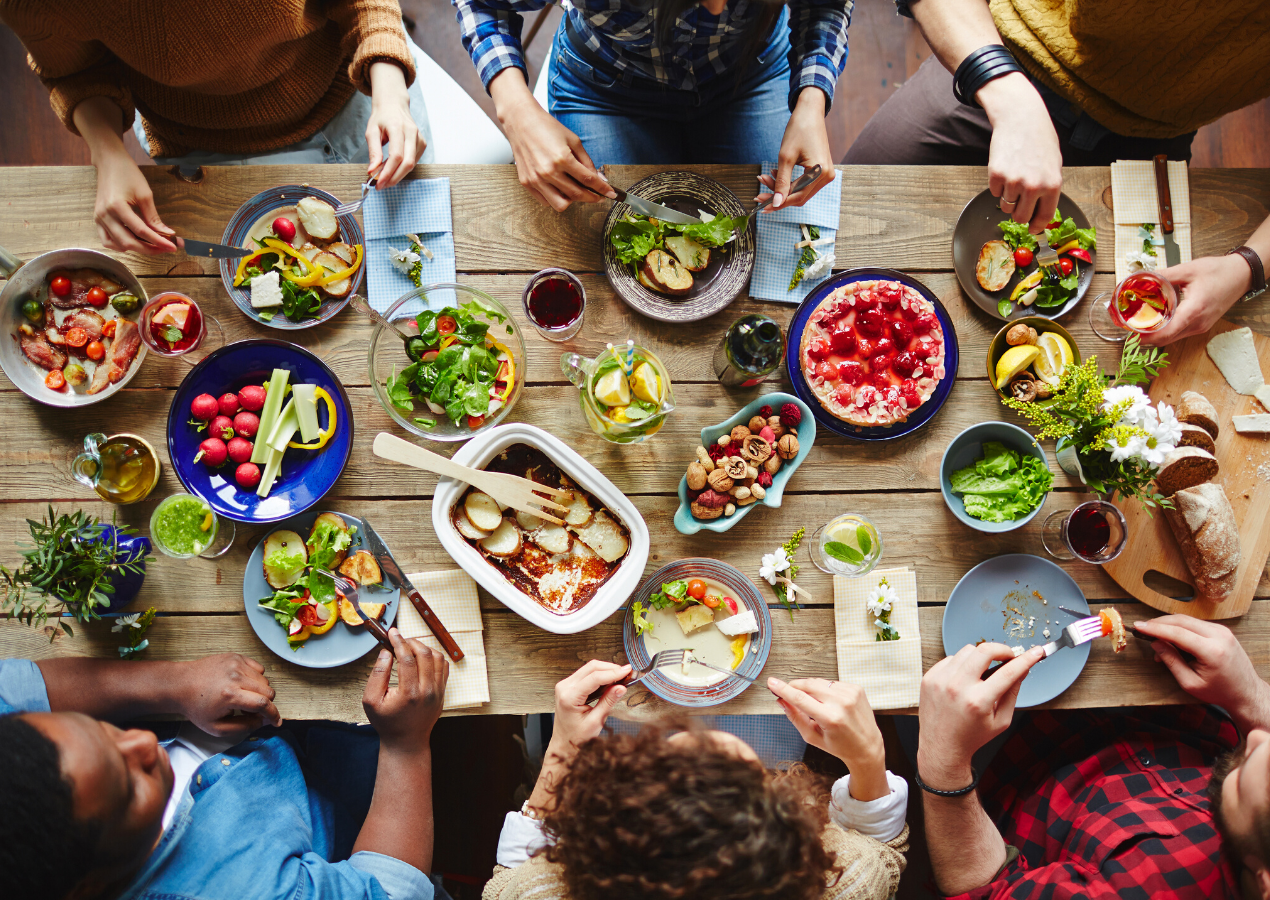With 90% of our serotonin receptors located in our gut, what we eat determines our entire lifestyle – our mood, energy and ability to rest. We all love to indulge in ice cream and fries every once in a while. But on a daily basis, how can we choose better foods? I talked to some of the most successful and productive entrepreneurs I know, and asked them about their eating habits.
Julia McCoy, Liviu Tanase, Uwe Dreissigacker and Eugene Woo spoke about their breakfast and dinner routine, and the foods that help them feel good. Is there any idea you could steal from them and use it when planning your meals? Read the Q&A below and find out!
Do you eat breakfast? What do you usually have?
Julia McCoy, CEO of Express Writers and Content Hacker: I do, but I have specific patterns in the morning that, since implementing, have equalled a ton of productivity. This is critical; without it, I don’t think as clearly.
I’m up at 6:30, and start by hydrating with about 24-48 ounces of lemon water (a lemon squeezed in fresh lukewarm water). This cleanses my system and gets me freshened up and ready, mentally and physically, for the day. Then, I switch to about 8 or 12 ounces of coffee, mixed with non-dairy creamer and honey.

Around 10:00, I’ll eat breakfast — a lean meal of no more than four or five tablespoons of food – 1/2 of an egg with fruit, a 1/4 cup of oats, etc. It sounds weird to eat that small of a portion size, I know, but over time I’ve learned that my brain thinks at lightning-fast speeds if I keep my food very, very minimal in the early morning!
Liviu Tanase, CEO of ZeroBounce: First thing in the morning, before coffee, I drink a lot of water – to me, that’s more important than eating something right away. In fact, I rarely eat breakfast because my productivity and focus are so much better without it. On the rare occasions that I feel hungry, I usually have two boiled eggs and maybe an apple.
There’s one exception, though: on Thursday mornings, my wife and I go out to eat and we get a veggie omelette with avocado and a side of bacon.
Uwe Dreissigacker, CEO of InvoiceBerry: I normally try to avoid eating breakfast. I’ve incorporated frequent periods of intermittent fasting where I don’t eat between 6 PM and 12 PM the following day, to let my body rest and recharge.
The four hours in my mornings, between 8 AM and 12 PM, are often the most productive. Once or twice a week I can finish my work day after those four hours and dedicate the afternoon to leisure.
Fasting helps me to concentrate on work in the morning and to avoid micro decisions like “What to eat?” or “Where to eat?”. This frees up a lot of energy to concentrate on the tasks that really matter.
On days when I eat breakfast, I have it with my daughter. Usually it’s something super-healthy, with plenty of fruit and veggies. Or I go the opposite direction, with croissants and marmalade along with my coffee.
Eugene Woo, CEO of Venngage: I usually have a combination of eggs, sourdough bread and fruit. For me, a full breakfast is a great way to start the day — it leaves me full till lunch and keeps my energy levels stable throughout the day. Also, I’m told it’s good for health.
What type of food has the best effect on you and helps you stay in shape, feel good, and be productive?
Julia McCoy: I switched to clean eating and a dairy-free, no processed sugar diet in July of 2018. My health has drastically improved slowly but surely, and I went from getting colds every other month to not getting sick and barely feeling “run down” at all (unless I don’t sleep, which can happen with a five-year-old, haha) for over eight months.
I can attribute many accomplishments I’ve hit — from writing my third book, a 150,000-word book in under two years, to launching a third business, to making the wisest business decisions I’ve made — to better health, stemming from clean eating.
It is incredible what clean eating can do. I’ve journeyed into multiple diets, including Paleo, Whole 30, ketogenic — but have found that sticking to ‘clean eating’ eliminates all the foods that would mess with my well-being.
Watching documentaries like The Magic Pill, Fed Up, Hungry for Change and Food Matters opened up my eyes to the monopoly of the profit-driven, health-last processed food industry here in America. Mass-produced, cheap processed food is killing our health, mentally and physically, and most of us are not even aware of it.
Liviu Tanase: The low-carb diet I’ve been on for a few years seems to work best for me. Not only does it help me stay healthy, but it allows me to function at full capacity every day. That’s not to say I never have any carbs – I do, but they’re mostly good, useful carbs that give me more energy for my workouts.

Uwe Dreissigacker: Thankfully, my metabolism seems great, so I wasn’t too affected by being raised on kebabs and junk food with very limited exposure to vegetables and fruit until my late twenties.
Only since the birth of my daughter I started cleaning up my diet and realized that, for example, quinoa salad is yummy and nutritious with lots of possibilities to get creative and add healthy ingredients.
Eugene Woo: Fruit and coffee. I eat fruit after every meal – breakfast, lunch and dinner. They keep me full, help me with my sugar fix and prevent me from resorting to other kinds of desserts that may or may not be a healthy option.
Coffee is an absolute must – I can’t wake up without one. I do not overdo it however, keeping my coffee to 2 cups / day at the most. I’ll drink a cup at 11 am to improve my focus mid-day, and another one no later than 4 pm to prevent staying up at night.
What do you usually eat for dinner?
Julia McCoy: I have a healthy, fairly large dinner (it’s my biggest meal of the day). My protein is either organic chicken, wild-caught fish, or a lean meat (bison, goat); I always incorporate greens; and I’ll make a fresh side like avocado potato salad, or sweet potato fries.
I cook and eat dinner with my hubby and five-year-old, and they thoroughly enjoy everything I cook, which is delightful!
Liviu Tanase: I like to have dinner with my wife and we usually have either chicken or beef with veggies or a salad. If no one’s in the mood to cook, we go out and get something similar. It’s rare that we have any pasta or other heavy foods. I like to work until late at night, and eating a lean meal allows me to stay in good mental shape.
Uwe Dreissigacker: I recently implemented a new food regime where I pre-cook lunch and dinner for three-five days ahead. I try to keep it the same base (for example quinoa) and add random additional ingredients, like broccoli, peppers, olives, jalapenos or other vegetables, depending on availability (in the fridge) and how I feel.

Eugene Woo: Dinner is very diverse. Mostly a variation of proteins (meats, beans, etc), salad, rice, pasta or potatoes. I eat sparingly during dinner because my breakfast and lunch are heavy. So a light dinner suits me and allows my body to unwind as well.
What do you most like to eat when you want to indulge?
Julia McCoy: 70-80% cacao chocolate bars, with nuts mixed in (usually walnut, hazelnut or almond). It’s one of the cleanest desserts you could eat — this type of chocolate is actually good for you — and tastes like heaven. I indulge a few times a week!
Liviu Tanase: Burgers and fries. Pizza. Chocolate. All the things that make us happy.
Uwe Dreissigacker: I love yuzu sorbet. Anything sour is normally great.

Eugene Woo: Home style Cantonese food is my go-to comfort food. Good sushi or Italian works well for me too. There’s a really good sushi place near my house that I sometimes go to with the kids during the weekends. Also, who doesn’t love a good Italian dish once in a while?


